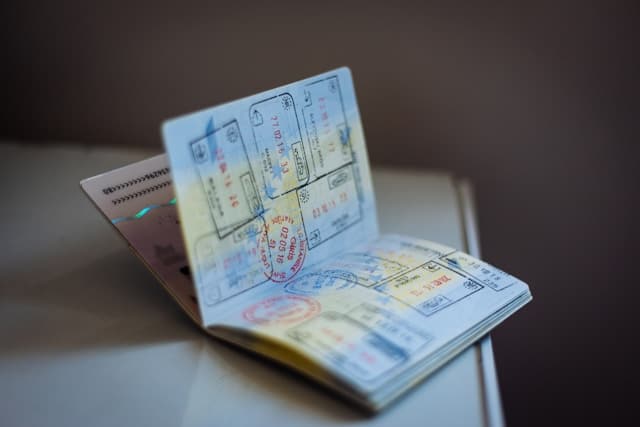
Working from a laptop while moving from city to city looks carefree online. In real life, the best trips come from careful reading. News feeds can guide you to the right place at the right time. They also warn you when a plan needs to change fast.
Below is a simple playbook for location-free workers who want to scan headlines, avoid risks, and pick winning spots for work and life.
Why Headlines Beat Travel Blogs
Most travel blogs show timeless tips. News shows what is happening right now. A neighbourhood that felt safe last year may be tense today. A visa rule can switch overnight. Costs can jump when a festival lands. News gives you the pulse.
A 2024 Statista survey found that 68% of remote workers read national news at least four times a week. Those who checked daily were 34% less likely to report trip-ending surprises like border closures or sudden rent hikes.
What to Look For
 Source
Source
Crime and Safety
Police reports and local papers show trends that official tourism sites skip. Rising theft in one district can push you to a calmer suburb. Watch weekly crime maps or follow local reporters on social media.
“I almost booked an apartment in central Quito,” said Clara Young, a freelance UX designer. “A news thread mentioned a street gang surge in that block. I moved two miles north. Saved my laptop and my nerves.”
Cost of Living Shifts
Economic news hints at price swings before they hit booking sites. If inflation spikes, short-term rents follow within weeks. The Global Cost of Living Index lists monthly updates. Compare them with your budget and move early if numbers climb.
Visa and Tax Changes
Governments adjust visa rules often. Ireland’s remote work visa draft stalled in parliament, but Croatia’s passed in days. Subscribe to embassy newsletters. They break news faster than travel forums.
Events That Fill Rooms
Big sports events or tech expos double room rates. Read business pages for conference calendars. A quiet June in Valencia turned hectic when a last-minute blockchain summit sold out all hostels.
Weather Alerts
Climate stories warn of monsoon shifts or wildfire risks. In 2023, heavy smoke grounded flights in Greece for three days. Apps like Windy and NOAA push alerts, but local news explains ground impact. Always layer your sources.
Tools for Fast Scanning
RSS Feeds
Use Feedly or Inoreader. Add city papers, embassy updates, and economic desks. Group them by region so you can skim in minutes.
 Source
Source
Keyword Alerts
Set Google Alerts for “visa rule”, “coworking price”, and “rail strike” plus the city name. You’ll get mail summaries every morning.
Local Podcasts
Many city radio stations run ten-minute news wraps. Download them for bus rides. They spotlight issues you miss in print.
Social Lists
Create a private X list with local journalists, meteorologists, and travel police. Scroll once a day. Quick, direct, and free.
A Real Month-to-Month Workflow
Week 1: Watch Long-Range Trends
Check foreign office advisories for political and health alerts. Mark countries in green, orange, or red. Green means plan freely. Orange means monitor twice a week. Red means hold off.
Week 2: Compare Costs
Open Numbeo and coworkingrate.com. Pull fresh data on rent, food, and desk prices. Place numbers in a simple sheet. If a city jumps more than 15% month on month, strike it out.
Week 3: Book with Flex
Book short stays first. Use options with free cancellation until three days before arrival. Airlines like Iberia and Qatar now sell change-friendly fares. They cost a bit more but keep you nimble.
Week 4: Check Ground Reports
Join local Facebook groups and Slack channels. Ask about Wi-Fi, power cuts, and noise. If you see new unrest posts or water shortages, pivot early.
From Bangkok to Budapest
Josh Patel, a software consultant, planned ten weeks in Bangkok last year. Two weeks before flying, Thai news sites flagged rolling blackouts after record heat. Josh studied evening reports and saw that coworking hubs were closing midday.
He swapped plans for Budapest, where the city council announced cheaper tram passes for remote workers. He booked a studio on the Pest side and cut daily transit costs by 40%. “News saved my whole quarter,” he said. “Work stayed smooth, and I only lost £65 in change fees.”
Plan your trip to Thailand:
Guarding Your Own Name Online
Remote workers often join forums, comment on news, and post reviews. Sometimes a rant ages poorly. If a harsh blog or review hurts your search results, you can erase negative news articles with help from specialist firms or by filing platform requests yourself. Protecting your reputation is part of safe travel, too.
 Source
Source
Quick Stats for Smarter Moves
- 35 million people worldwide now work fully remote while travelling (MBO Partners, 2024)
- Average Wi-Fi speed in major hubs rose 27% last year (Ookla)
- Hostels in cities with major events see price spikes of 55% on average (AirDNA, 2023)
- Countries offering remote work visas jumped from 9 to 47 between 2020 and 2025
Action Checklist
- Set news alerts for visa rules, cost of living, and crime in your target city.
- Review embassy advisories every Monday morning.
- Keep a running cost sheet and update it mid-month.
- Book stays with free cancellation where possible.
- Join local online groups two weeks before arrival for on-the-ground intel.
- Backup your files and scan for news on power or internet cuts.
- Keep a clean footprint online. Remove old posts that could harm future contracts.
Final Word
Travelling while working is more than beach photos and café desks. It is a moving puzzle that shifts with every headline.
“I never pick my next stop based on vibes alone. I read the local news for two weeks straight. If the headlines feel stable, I go,” said Shlomo Kubitshuk, remote work consultant and founder of Nomad Insights.
Read widely, act fast, and you can land in places that boost your work and your wallet. Ignore the news, and the news might ruin your trip. Stay sharp, stay curious, and let the headlines guide your next flight.
